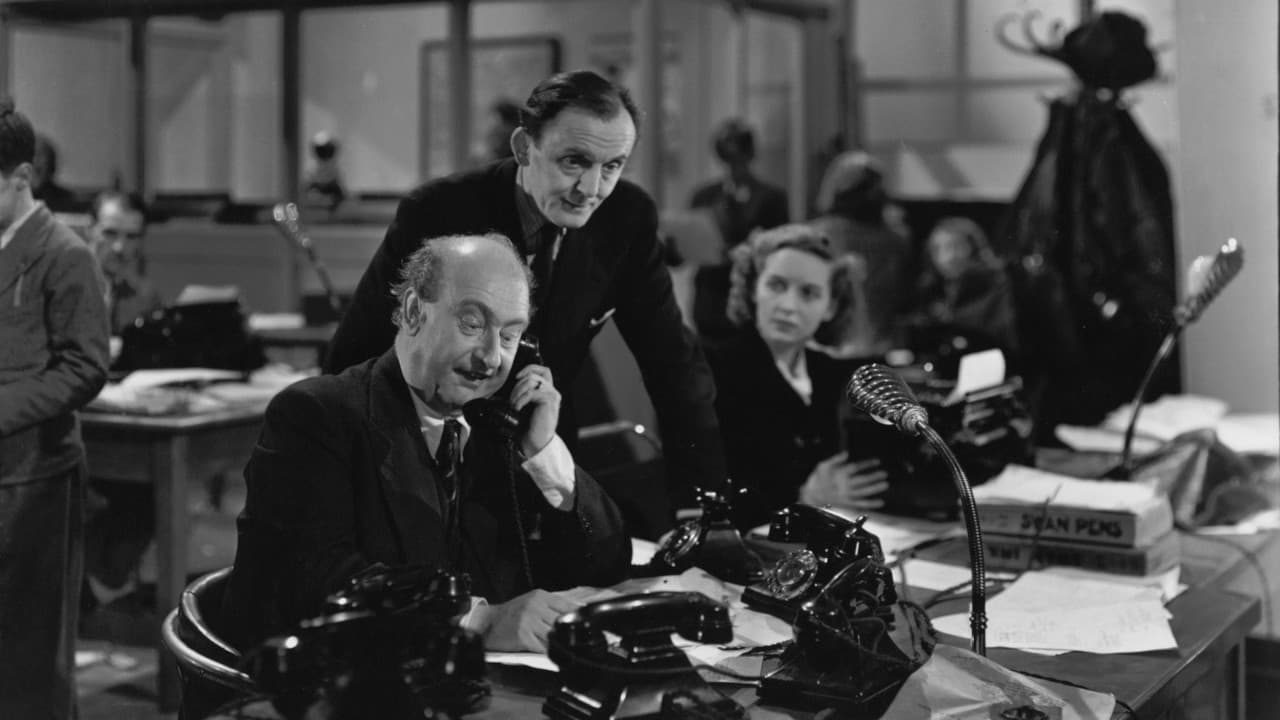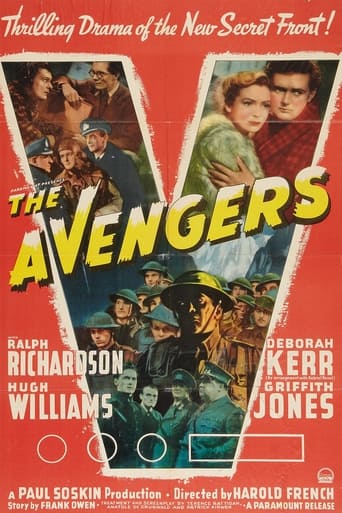



What makes it different from others?
Well Deserved Praise
The film was still a fun one that will make you laugh and have you leaving the theater feeling like you just stole something valuable and got away with it.
View MoreThe movie's neither hopeful in contrived ways, nor hopeless in different contrived ways. Somehow it manages to be wonderful
View MoreThe purpose of many of the films made during WWII was to rouse the people in favor of the war effort....a sort of positive propaganda effort. And, when it comes to this goal, few pictures do as well as "The Day Will Dawn" (also called "The Avengers").The story begins with the Nazi invasion of Poland. The scene opens up in a newspaper office and folks are excited about the UK finally being at war...but also concerned that the British government has so far done nothing to check the Germans. One of the reporters, Colin Metcalfe (Hugh Williams) is sent on assignment to cover Norway. This is before the German occupation of the country, but Colin is concerned by the actions of the supposedly peace German seamen...he sees them as preparing for the invasion of Norway. His attempt to warn the British government and people is twarted however....and later he finally gets the chance to redeem himself....by sneaking back into Norway and helping his air force to locate and destroy a secret German submarine base.The film has a pretty good cast. In addition to Williams, Ralph Richardson, Deborah Kerr (in one of her first films) and Finlay Currie also are there to provide excellent support. As far as the rest of the picture goes, it's near perfect and very well made....aside from the overuse of bad (scratchy) was stock footage.
View MoreWe have seen this before, the freedom fighters of Norway under Nazi occupation, their hardship, their courage, their determination, their heroism and so on, and if this film at least is better than "The Moon Is Down" on the same theme, it's not up to Errol Flynn's "The Edge of Darkness". The one outstanding asset of this film though is the leading lady, a very young Deborah Kerr, who in a way sustains the whole movie. In the beginning she is just a very cheerful and happy Norwegian lass, but when the Germans come to build an oil refinery, which turns out to be a submarine base, the Norwegians get into trouble, and in order to save her father's life (Finlay Currie) Deborah has to marry the local Quisling, the local police, whom the Norwegians don't know at first that he is collaborating with the Germans (Francis L. Sullivan, awesome as usual.) When Hugh Williams as an English spy learns this on his second coming, he fell in love with Deborah during the first, he is not very happy.It's a very typical British edifying war film from the very darkest year 1942 and sides with many others of the same kind, outdated today, but still interesting for their great moral enthusiasm about surviving and fighting tyranny.
View MoreTHE DAY WILL DAWN is a familiar British propaganda picture of WW2, released in 1942 when the war was still in full swing. It has a decent cast to help take your mind off the familiarity and indeed predictability of the plotting. The setting is Nazi-occupied Norway, where British secret agents work undercover in order to bring said Nazis to book. Hugh Williams is a somewhat ineffectual hero but watch out for the dependable likes of Finlay Currie, Roland Culver, Ralph Richardson, Francis Sullivan, and Raymond Huntley. Deborah Kerr's Norwegian accent fails to impress while Valentine Dyall and Walter Gotell have early bit parts as Germans.
View MoreAs FDR said, "If anybody is unsure as to why this war is being fought, let them look to Norway". This British film came a year before Warner Brothers' "Edge of Darkness" ended with that paraphrased quote. That lavish drama with Errol Flynn took place in a coastal fishing village and covered pretty much the same topic as this, how the locals all got together and vowed to drive the Nazis out, no matter what the consequences or loss of life might be. The same thing happens here, except that it all starts with the arrival of the German U-Boats and shows how the British got involved with the resistance, assuring them with a "wait and see" attitude that the timing would ultimately wound the Nazis more than an all out attack before their defenses were down.Ralph Richardson is the British spy in the camp, assuring Norweigans that help is imminent. He falls for the lovely Deborah Kerr, the feisty daughter of a fisherman being held by the Nazis for making anti-German statements. She is forced to marry a "Quisling" (traitor) to save her father and as a result of her marriage becomes an outcast even though she is secretly working with several members of the resistance who know the truth. The other townspeople do everything in their power to make the Nazis lives miserable, humorously going out of their way with little annoyances. When a night raid leaves dozens of Germans dead, eight Norwegian men (along with Richardson and Kerr) are arrested and sentenced to be shot, but in the nick of time, a crowd pleasing (if improbable) finale leads to a hopeful ending where the usual propaganda machine narrative warns against the Nazis and also warns the Axis (for those of them who would actually see this film) that their days were numbered and that the day would dawn when freedom will ring again for German occupied countries.Films like this were a dime a dozen during World War II and most are at least enjoyable if not predictable in their narrative. The Nazis are presented fairly, only a few being genuinely evil, the others doing their duty as they've been ordered, a reminder that many of them too were either manipulated or forced by evil powers greater than themselves to follow a leader they feared too much to rebel against.
View More